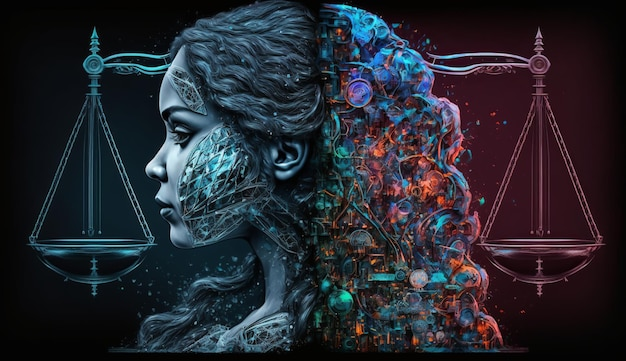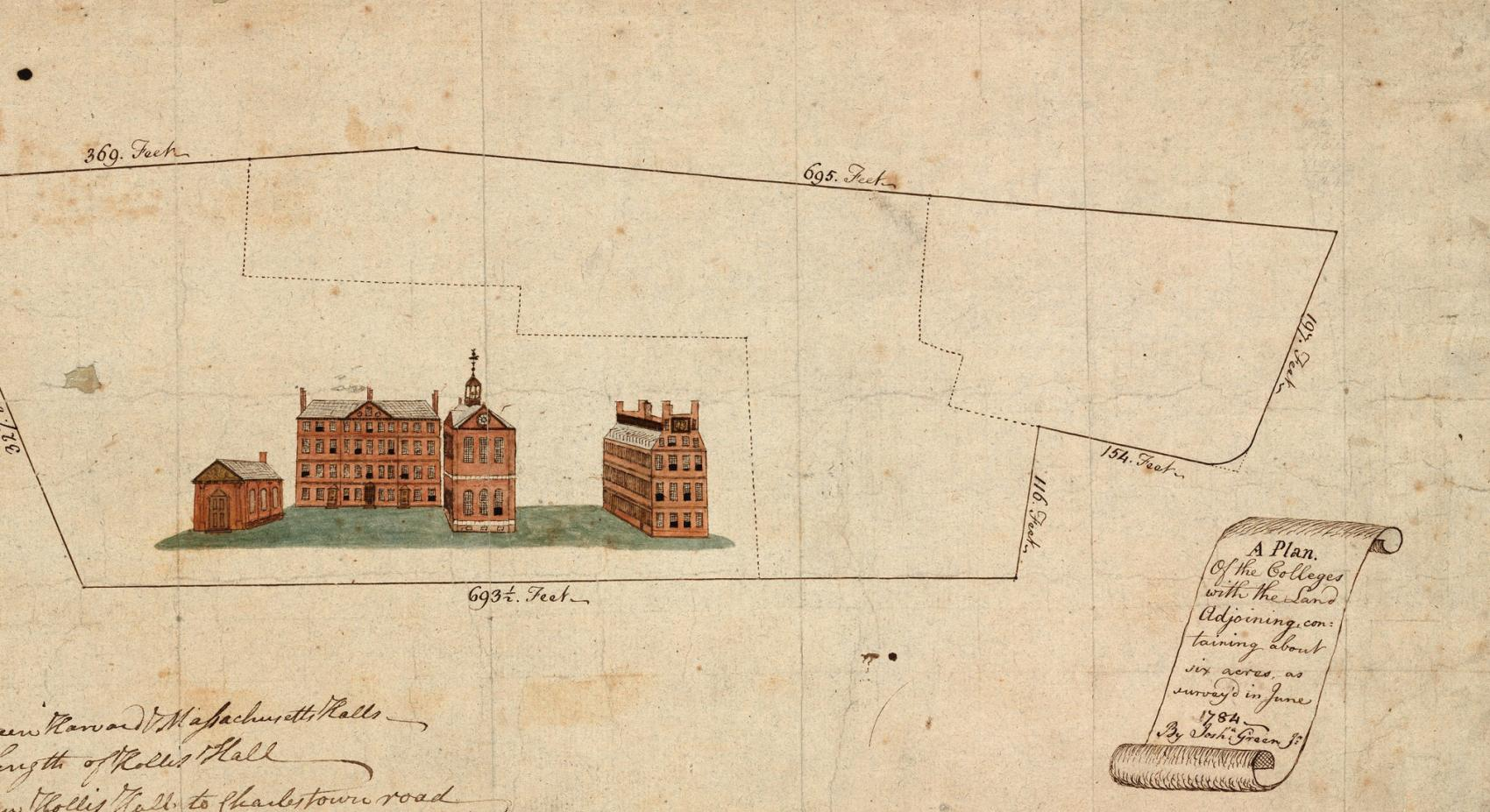AI and social justice are intertwined fields that challenge us to rethink how technology shapes our society. Thought leaders like Ruha Benjamin argue that the narratives surrounding artificial intelligence often neglect the potential for oppressive outcomes, particularly for marginalized communities. In lectures and discussions, Benjamin highlights how the future of AI, framed by tech elites as innovative, may actually reinforce existing inequalities rather than dismantling oppression. She advocates for a more inclusive approach that incorporates insights from art and humanities, allowing for a deeper understanding of the societal impact of these technologies. Emphasizing the necessity of collective imagination, Benjamin invites all voices to the table, urging us to envision a just and equitable future while scrutinizing the self-interested motives behind AI advancements.
The intersection of technology and equity, commonly explored through the lens of artificial intelligence, raises critical questions about the role of innovation in society. Influential figures like Ruha Benjamin have spotlighted the challenges posed by a future where tech companies predominantly dictate the narrative around progress. The discussions surrounding the evolution of machine learning and its implications for marginalized groups underscore the need for a balanced perspective that includes voices from diverse backgrounds. This alternative discourse aims not only to critique but also to inspire creative solutions that transcend current systems of oppression. By weaving together notions from both the sciences and humanities, we can approach the future with a richer understanding of our collective potential for change.
Imagining a Just Future: AI Through the Lens of Social Justice
Ruha Benjamin’s insights challenge us to reimagine the future of AI beyond the dystopian narratives often propagated by tech elites. She argues for a future where technology serves the collective good, emphasizing that the average citizen should not be afraid to envision transformative possibilities. As we consider advancements in artificial intelligence, it’s crucial to embed principles of social justice within its evolution, ensuring that innovations do not reinforce existing inequalities but rather pave the way for equitable opportunities for all. By focusing on the intersection of social justice and technology, we can leverage AI to dismantle systemic oppression rather than perpetuating it.
The conversation around AI and social justice must recognize the implications of algorithms and automated decision-making, especially for marginalized communities. Benjamin highlights how technologies, often marketed as unbiased solutions, can perpetuate historical injustices reminiscent of the eugenics movement. To break free from these cycles, technologists and policymakers must incorporate diverse voices and perspectives, especially from the arts and humanities, into discussions about the future of AI. By doing so, we can cultivate a narrative that encourages creativity, empathy, and collaboration, allowing us to design tools that uplift rather than discriminate.
The Role of Tech Elites in Shaping Our AI Future
Ruha Benjamin warns against placing blind trust in the motivations of tech elites who are currently at the forefront of AI development. She argues that individuals in positions of power, often solely motivated by profit and self-preservation, may not possess the wisdom required to guide societal advancement towards equity and justice. Benjamin points to billionaires fabricating solutions for their sanctuaries while the rest face the potential harms of AI-driven inequalities. This critical perspective urges us to question whose vision is truly being served, challenging us to demand accountability from those shaping our technological landscape.
Disruptive innovations, such as AI, should not only be viewed through a lens of efficiency and progress but also assessed for their ethical implications on society. In Benjamin’s view, tech elites frequently promote their advancements, while overlooking the detrimental effects felt by various communities. Rather than being mere architects of technology, these individuals should engage in collaborative dialogues with social scientists and marginalized groups to ensure that the tools we create are not only advanced but also socially beneficial. This recalibration of priorities sets the stage for a more inclusive development process that reflects the values of justice and equity.
Integrating Arts and Humanities in AI Development
Benjamin advocates for a critical reevaluation of how arts and humanities can inform the development of AI technologies. She emphasizes that creativity and imagination must play a central role as we navigate the complexities of an AI-driven future. Rather than relying solely on mathematical precision, incorporating diverse cultural narratives and ethical frameworks from arts and humanities encourages a holistic understanding of human experiences and societal needs. By broadening the scope of knowledge at the table, we pave the way for innovations that resonate with the realities of those who stand to be most affected by such technologies.
The potential of AI can be greatly enhanced when its development is infused with artistic creativity and a thorough understanding of cultural contexts. This intersection not only fosters innovation but also allows for the consideration of diverse ethical implications that accompany technological advancements. As Benjamin suggests, we should not shy away from asking bold questions like ‘What if?’ instead of being confined by traditional frameworks that limit our vision. Embracing intersections of art, humanities, and technology invites fresh perspectives that can reshape our relationship with AI, ultimately contributing to a more compassionate society.
Dismantling Oppression Through Technology
Dismantling oppression requires a conscious effort to recognize and mitigate the biases entrenched in AI technologies. Ruha Benjamin insists that it’s imperative to confront the social injustices that have been historically woven into the fabric of tech innovations. The design and deployment of AI systems must actively aim to reduce disparities, whether they concern race, gender, or socioeconomic status. Achieving liberation from oppressive structures in our technological landscape demands that we incorporate voices from affected communities, ensuring they are not mere subjects of these technologies but are integral to their development.
Moreover, the call to dismantle oppression through technology must be accompanied by societal awareness and engagement. Benjamin emphasizes that we should challenge the narratives that elevate technological advancements to the status of inevitability. Instead, we must advocate for solutions that prioritize justice and equity, considering how AI can act as a tool for liberation rather than oppression. Addressing these challenges requires a multidisciplinary approach, where social scientists and activists collaborate with tech developers to foster a conscientious evolution of AI that reflects our collective values and aspirations.
Rethinking Efficiency vs. Public Good in AI
In her critique of current AI paradigms, Ruha Benjamin highlights the stark contrast between narratives centered on ‘efficiency’ and those prioritizing public good. She articulates that too often, technological solutions are framed as inherently beneficial, masking the underlying social ramifications that come with these advancements. Rather than accepting the characterization of these systems as morally neutral, we must scrutinize their impact on the welfare of society. This shifts the focus from blind trust in technology towards a philosophy that champions the importance of incorporating human values into AI development.
The debate surrounding efficiency often overlooks the larger questions about the true purpose of technology. Benjamin encourages us to visualize AI as a means of addressing societal needs rather than merely enhancing operational productivity. This perspective urges stakeholders in the tech industry, policymakers, and the general public to engage in constructive dialogues about the ethical distribution of AI benefits. By reimagining what it means to prioritize the public good, we open the door to innovations that serve all corners of society equitably.
The Intersection of AI and Community Engagement
Benjamin’s discourse reveals the importance of community engagement in the design and implementation of AI technologies. She argues that an inclusive approach is crucial for ensuring that AI solutions genuinely reflect and address the needs of diverse populations. Technology should not exist in a vacuum; rather, it should be embedded within the social fabric that informs its use and impact. Bridging the gap between technological development and community involvement fosters greater trust and accountability, encouraging citizens to actively participate in shaping the digital landscape.
Community-focused AI initiatives have the potential to empower marginalized voices, ensuring that technology serves as a tool for enhancement rather than oppression. By engaging with local populations, technologists can better understand the complexities of their realities, iterating on solutions that are culturally sensitive and effective. The future of AI lies in collaborative efforts that prioritize community well-being, advocating for a model of technology that thrives on inclusivity, transparency, and social responsibility. This approach redefines how we view innovation, aligning it closely with the aspirations of those whose lives it intends to transform.
The Need for Critical Dialogue in AI Ethics
Benjamin’s lectures prompt a critical examination of the ethical dimensions surrounding AI development. She emphasizes the necessity of fostering dialogue that goes beyond technical specifications and engages deeply with the ethical implications of AI technologies. Given the pervasive influence of AI on daily lives, discussions around its moral obligations, impacts on privacy, and potential for societal harm must be front and center. Such critical dialogues serve as a means of holding tech developers accountable and ensuring that ethical considerations guide the trajectory of AI advancements.
Engaging in thoughtful discussions about AI ethics invites stakeholders from various sectors—including philosophers, sociologists, artists, and technologists—to contribute their perspectives. This interdisciplinary approach enriches our understanding of technology’s potential harms and benefits, enabling a more nuanced view of AI as it relates to society. Effective dialogue not only challenges prevailing dogmas but also brings forth innovative ideas that can mitigate risks while amplifying the positive impact of technology. By prioritizing ethics in AI, we foster a landscape where technology serves humanity with integrity and fairness.
Envisioning New Paradigms for AI-Driven Societies
Ruha Benjamin champions a vision of society that transcends the limitations of traditional tech narratives, propelling us towards a reimagined future where AI prioritizes shared flourishing. She argues that we must break free from a mindset that positions technology as the sole savior, and instead develop paradigms that embrace our interconnectedness. In envisioning new societal frameworks driven by technological advancements, it is crucial to integrate principles of justice, equality, and sustainability to ensure that the benefits of AI are accessible to all.
The challenge lies in pushing beyond existing models of innovation that often cater to a select few. Benjamin’s call for a broader societal imagination underscores the urgent need for collective dreaming—one that celebrates the possibilities of technology while critically assessing its limits. By harnessing the power of creativity from various disciplines—including the arts and humanities—we can collectively envision solutions that are not just about efficiency but about nurturing a better world for everyone. This holistic approach can catalyze transformative societal change, inspiring a future where AI is a force for good.
The Importance of Historical Context in AI Discussions
Benjamin’s lectures underscore the need for historical context when discussing AI’s development and implementation. Understanding the historical injustices that inform contemporary technological issues, including systemic racism and economic inequality, is essential for framing current debates surrounding AI. By integrating historical perspectives, we uncover the patterns of oppression that persist in modern technological designs, enabling us to challenge the status quo and advocate for more equitable solutions.
Moreover, incorporating historical context compels us to critically assess how past movements—such as the eugenics movement—have shaped societal attitudes towards marginalized groups. As Benjamin points out, there is a danger in viewing AI as a neutral form of technology devoid of social implications. Thus, fostering a discourse that acknowledges historical injustices enables more robust discussions about ethical AI development, promoting accountability among those creating technology that will shape future societies.
Frequently Asked Questions
How does Ruha Benjamin’s work relate AI and social justice?
Ruha Benjamin’s work critically examines the intersections of AI and social justice, highlighting how AI technologies can perpetuate societal inequalities. She argues that while tech elites promote AI as a means to progress, these tools often reinforce oppression and fail to address the underlying social issues.
What are the implications of AI technologies for marginalized communities according to Ruha Benjamin?
According to Ruha Benjamin, AI technologies like facial recognition and automated decision-making systems disproportionately harm marginalized communities. These technologies, often marketed as efficient and neutral, can lead to wrongful arrests and unequal access to healthcare, mirroring historical injustices faced by these groups.
In what ways does Ruha Benjamin suggest we can reimagine AI for social good?
Ruha Benjamin advocates for reimagining AI by incorporating diverse knowledge systems and prioritizing creativity from the arts and humanities. She encourages a collective approach to dismantling oppression and fostering environments where innovative, socially conscious alternatives to current AI solutions can thrive.
What role do tech elites play in shaping the future of AI and social justice?
Tech elites significantly influence the future of AI, often prioritizing their interests over societal welfare. Ruha Benjamin warns that trusting these individuals to guide AI’s evolution towards social good is misguided, as their motivations are frequently self-serving and disconnected from the needs of the broader community.
How can creativity and imagination contribute to social justice in the context of AI?
Creativity and imagination are crucial in envisioning a future where AI serves the common good. Ruha Benjamin highlights the importance of engaging diverse perspectives beyond technical expertise, urging society to develop AI solutions that dismantle oppression rather than simply mitigate harm.
What misconceptions about AI does Ruha Benjamin challenge in her discussions on social justice?
Ruha Benjamin challenges the misconception that AI is an unbiased, morally neutral tool. She argues that societal decisions based on algorithms can perpetuate historical injustices and that technological advancement should be critically evaluated for its ethical implications on social equity.
How does Ruha Benjamin’s vision for the future of AI differ from current narratives promoted by tech companies?
Ruha Benjamin envisions a future of AI that prioritizes human values and social equity, contrasting with the prevalent tech company narratives that emphasize efficiency and progress without adequately addressing the ethical ramifications or social contexts.
What educational shifts does Ruha Benjamin propose to enhance the relationship between AI and social justice?
Ruha Benjamin calls for educational shifts that integrate arts and humanities into discussions about AI. By fostering interdisciplinary learning, she believes we can better prepare future technologists to understand and address the complex social challenges posed by AI technologies.
| Key Points | Details |
|---|---|
| Radically Different Future | Ruha Benjamin argues that everyone, not just tech elites, should envision a different future for humanity. |
| Skepticism of Tech Elites | Tech leaders cannot be blindly trusted to solve human suffering; their interests may not align with the collective good. |
| AI Perpetuating Oppression | AI technologies often perpetuate existing inequalities, evidenced by wrongful arrests from facial recognition. |
| Mathematics vs Emotion | AI decision-making lacks social context, which can harm marginalized communities. |
| Need for Diverse Knowledge | Critics argue that those developing tech lack societal understanding, bringing a call for broader knowledge at the decision-making table. |
| Creativity and Imagination | Emphasizing arts and humanities is crucial for reimagining social systems and pushing for innovative solutions. |
| Reimagining Society | Shift focus from less harmful systems to completely rethinking societal structures beyond current limitations. |
Summary
AI and Social Justice are crucial topics that challenge us to rethink how technology influences societal structures. Ruha Benjamin’s insights encourage us to imagine a future where AI is not just an extension of existing inequalities but a tool for genuine progress. As we look ahead, embracing creativity and inclusivity in discussions around AI and social justice can lead us to a more equitable society.




